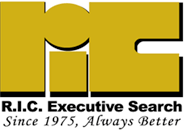Why You Stink As A Leader
By Tom Welch
Alright, maybe you don’t stink. There’s a chance that you’re a decent leader and this article caught your eye because you’d like to know why other leaders stink even though you don’t.
You might be an inexperienced leader and you’d like to know what to avoid as you develop your skills. Or maybe you’ve got a boss who stinks and your plan is to sneak these pages to the front and center of his/her desk.
You might even agree that you stink as a leader and you just don’t know what to do about it. If that’s the case, you’ve probably never had a strong leader to mentor you and measure your progress much less hold you accountable for leadership results.
That’s really what it’s all about….results. So, let’s look at some of the results of your leadership.
The 2008-2009 Global Leadership Forecast from Development Dimensions International reported that only 35% of 13,700 leaders and HR professionals expressed confidence in their companies’ leaders, the lowest numbers since 1999. Would you work for a company where 65% of the employees have no confidence in their leaders? Maybe you already do.
In a study of 300,000 businesses, Gallup discovered that 80% of employees were achieving much less than they were capable of and feeling unenthusiastic about their work. Where’s the leadership?
Careerbuilder.com reported that 78% of employees would leave their employer for a better job and Monster.com found that 70% of 21,000 workers said they have a toxic boss. The leaders are obviously not leading.
None of this surprises me because as I travel to coach executive leaders or speak to large business audiences, I conduct my own informal surveys. My findings aren’t much different. Close to 80% of the workforce is disenchanted with their job or career.
Why? For the most part, the answer is stinky leaders. That’s what I hear over and over again. That’s what exit interviews have told us. The # 1 reason people leave a job is because of a bad boss.
The big question is, why all those stinky leaders? And the even bigger question is, what can you do about it? No need trying to assign blame. Instead, let’s see what we can all do to improve our ability to lead.
We’ll barely scratch the surface of this exhaustive topic, but that could be good. Maybe one of the reasons for the stench is that we’ve made this whole leadership thing too difficult. There’s too much to think about.
Why do you stink as a leader?
You make it too complicated.
How do you define leadership? If you’re like me, you’ve heard lots of explanations and they’re probably long and arduous. Long and arduous doesn’t get done. Simple gets done.
Think about this. Leadership is “helping others succeed.” That’s it. You can add a few more words like, “around a common cause.” But real simply, as a leader, you help your people succeed.
In my coaching of executive leaders, I have two goals. One is to help them live a happier, more balanced life. The second is to help them be more effective in their leadership so they can make more of a difference for others and for their organization. They accomplish both those goals by helping others succeed.
You don’t lead yourself first.
Before you can effectively lead others, you have to understand your own passions, skills, talents, values and interests. What drives you to succeed? You need to love what you do to enthusiastically help others. Your authentic self, that is uniquely you, must come through naturally in your words and your actions.
Leaders fail from arrogance, egos and insensitivity. If you have an overwhelming need to impress others, lose it. Use your passion and drive to help your team and organization succeed for a common cause. The best leaders serve others for the benefit of all.
You haven’t created trust filled relationships.
The Watson Wyatt USA Work Study found that less than 40% of employees at U.S. companies trust their leaders. Are you kidding me? The foundation of leadership success is trust. And by trust, I don’t only mean keeping your word. True trust is complete vulnerability. You and your people can say whatever is on your mind because you are doing it in a collaborative fashion for the benefit of all. No repercussions or back stabbings. Simply open and honest communication.
How would you complete this next sentence? As a leader, it is critical that you view your business through the eyes of your ___________________. If you said “employees”, take a gold star. Keeping that thought in mind, make sure your people understand your commitment to trust. Also, assure that their perception of that trust is the same as yours.
Once you have a high degree of trust, you can freely empower your people. You can let them innovate and grow. As Lou Gerstner, who is credited with saving IBM, once told me, “Creativity and invention are the key business skills.” With trust in place, you can let your people use their authentic strengths to take your team to a level of superior performance. You can also give them permission to fail because as Thomas Edison once proclaimed, “Failure is the predecessor of success.” With trust as your foundation, innovation and failure lead the way to renewed results.
You don’t understand the value of employee engagement.
Engaged employees are happy and productive. They are self-motivated and naturally passionate about what they are doing. They get meaningful results by using their strongest strengths.
As a leader, your goal is moving your people as close to engagement as possible. An engaged employee is using the talents and skills he enjoys. He is working around people he respects. She has her values met and she feels she is making a difference.
It is your leadership responsibility to make sure that each of your people is in a role that closely matches their authentic self. Assure that they are using and developing their strengths. Leaders help produce passionate workers when they understand superior performance, know how to hire right, how to inspire and how to recognize and reward their people.
You don’t communicate clearly enough or often enough.
In a recent research report by Watson Wyatt, Effective Communications: A Leading Indicator of Financial Performance, the data demonstrated a solid correlation between communication effectiveness, low organizational turnover and strong financial performance. Yet, ineffective communication is constantly near the top of employee complaints about leadership.
Talk with your team as a group. Let them know what you know. Take Sam Walton’s advice and, “Communicate everything.” Give your team an opportunity to express their opinions. Everyone wants to have their ideas heard. It’s not only good for the pure value of communicating, it also helps with the trust building.
Even more important is to talk with your employees individually. Get to know their skills, talents and values. Get to know them as a person and not just an employee. Understand how they want to be led. That’s right. Lead each of your people in the way that makes them the best they can be. The Golden Rule, “Do unto others as you would have them do unto you”, is outdated. Go with the Platinum Rule. “Do unto others the way they want to be done unto.”
You don’t hold yourself or your people accountable.
Do you ever measure how your leadership is progressing? We measure lots of business statistics but we fail to measure the biggest contributor to success, leadership improvement. This lack of accountability is why so much of leadership training loses its value. Understanding what to do is one thing. Doing it for the long term is another. Accountability leads to behavioral change.
Do you know how your people perceive you as a leader? They’re the best judges. Why not ask them. Do it every few months so you not only know what to improve but you also get some feedback on how you are doing. That’s holding yourself accountable.
Also, make sure your people are accountable. With their input, set timelines and put measurement criteria in place so you both can assess progress. The effects of our actions on a daily basis are hardly recognizable, yet over time, huge accomplishments occur. Keep moving toward the goal each and every day. Measure the progress as often as needed to stay on course. You’ll be amazed at the results and your people will truly be aware of the difference they are making.
There you go. Six strategies to help you remove that leadership stench. That’s enough to get you started. Now, it’s up to you. Remember, understanding what to do won’t get it done. Doing it will. Doing separates the leaders from the pretenders.
Tom is a renowned leadership expert and executive coach. He founded R.I.C. Executive Search in 1975. For more than 36 years, he and his team have helped industry leaders attract and retain extraordinary executive talent. Through his coaching, he has guided his clients in transforming their leadership into extraordinary business results.
Tom has been featured in numerous publications including The New York Times, Chicago Tribune, LA Times, Business Week, USA Today, Smart Money and Kiplinger’s. He has been heard on the Wall Street Journal Radio Network and Business Talk Radio. He is the author of The Career Cure, Work Happy Live Healthy and The Breakthrough Job Search Cure.
Contact Tom at twelch@ricsearch.com or visit www.ricsearch.com

